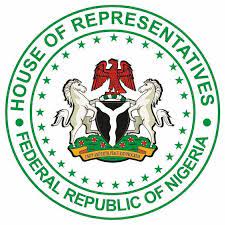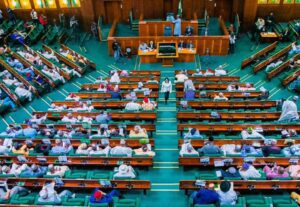Executive Summary
Nigeria’s House of Representatives has advanced, to second reading, a constitutional amendment bill seeking to bar Nigerians above the age of 60 from contesting for the presidency or governorship. Sponsored by Hon. Ikeagwuonu Ugochinyere of Imo State, the bill proposes amendments to Sections 131 and 177 of the 1999 Constitution, setting a maximum age cap and raising the minimum educational qualification for aspirants to at least a bachelor’s degree.
If enacted, the law would dramatically reshape Nigeria’s political landscape starting with the 2027 elections, disqualifying prominent figures such as Atiku Abubakar (78), Peter Obi (63), Nasir El-Rufai (65), and even President Bola Tinubu (72). The proposal has triggered heated debates over generational change, inclusivity, constitutional fairness, and the risk of retroactivity.
This report provides a comprehensive analysis of the bill:
- Legal foundation and constitutional considerations.
- Historical and comparative perspectives from other nations.
- Political and socio-economic implications for Nigeria.
- Public policy merits and risks of imposing an upper-age limit.
- Recommendations to ensure fairness, constitutional compliance, and smooth implementation.

Legislative Background
On its face, the Ugochinyere bill is part of a wider effort by the National Assembly to reform Nigeria’s democratic framework. Alongside the age-limit proposal, several other bills were debated, including:
Alvan Ikoku Federal University of Education Bill: Seeks to upgrade the Alvan Ikoku College of Education in Imo State to full university status.
Creation of Ideato West Local Government Area Bill: To strengthen grassroots governance in Imo State.
Youth and Disability Inclusion Bill: Mandating inclusion of youth and persons with disabilities in political appointments.
Concurrent Trade and Commerce Bill: Moves trade and commerce to the concurrent list, enabling both federal and state regulation.
Reserved Seats for Women Bill: aims to expand female representation in national and state legislatures.
Together, these initiatives reflect a legislative appetite for greater inclusivity, decentralisation, and generational renewal in governance.
Current Constitutional Framework
Minimum Qualifications (Before Amendment)
Under the 1999 Constitution, as amended:
- Section 131 sets the qualifications for the presidency. A person must be:
- A citizen of Nigeria by birth.
- At least 35 years old.
- A member of a political party, sponsored by that party.
- Educated up to at least the School Certificate level.
- Section 177 applies similar requirements to gubernatorial aspirants.
Not Too Young To Run Act (2018)
The 2018 constitutional amendment, popularly known as the Not Too Young To Run law, reduced the minimum ages for aspirants:
- President: from 40 to 35 years.
- Governor: from 35 to 30 years.
- House of Representatives: from 30 to 25 years.
This reform opened political space for younger aspirants but left untouched the absence of an upper age cap.

The Ugochinyere Proposal
The new bill seeks to reverse the imbalance by introducing an upper threshold:
Presidential aspirants must be not more than 60 years old at the time of election.
Gubernatorial aspirants face the same cap.
Minimum educational qualification raised to a bachelor’s degree.
If passed, these provisions would amend Sections 131 and 177, adding explicit upper-age qualifications for the first time in Nigeria’s history.
Legal and Constitutional Analysis
Non-Retrospectivity
One of the cardinal principles of constitutional law is that legislation cannot be retrospective where it infringes on vested rights. President Bola Tinubu, elected in 2023 at the age of 71, cannot legally be barred from seeking a second term under rules that did not exist at the time of his first election.
To do so would:
1. Violate Section 36(8) of the Constitution, which prohibits retroactive criminal liability and by extension affirms the principle of legal certainty.
2. Constitute an infringement on his fundamental political rights, creating grounds for immediate constitutional challenge.
3. Undermine the principle of tenure security, which allows an incumbent to plan and execute short, medium, and long-term programmes with the expectation of serving out the constitutionally provided period.
Thus, while the bill can validly disqualify future aspirants, it cannot be applied to disqualify Tinubu’s eligibility for a second term.
Transitional Clause Needed
For the bill to withstand judicial scrutiny, it must contain a savings clause, e.g.:
“Nothing in this amendment shall affect the tenure or eligibility of any incumbent elected before its commencement, who shall retain the right to seek a second term in accordance with the unamended provisions of the Constitution.”
Comparative International Analysis
Globally, upper-age limits for elected leaders are rare but not unheard of.
United States: Minimum age for president is 35; no upper limit. However, debates are ongoing as both President Joe Biden (81) and Donald Trump (78) contest elections.
Indonesia: A proposed maximum age of 70 was struck down by the Constitutional Court, which argued that the Constitution itself sets qualifications and Parliament cannot impose arbitrary exclusions.
Cameroon & Uganda: Both countries removed presidential age limits (70 and 75 respectively) to extend incumbents’ stay in power, drawing criticism.
Nigeria (Judiciary): Judges of the Supreme Court and Court of Appeal must retire at 70, and civil servants at 60. This shows that age ceilings already exist in high-responsibility offices within Nigeria’s system.
The Nigerian proposal would therefore align with domestic practice for civil service, though it diverges from the global norm for executive political offices.
Historical and Political Context in Nigeria
Nigeria’s presidency since 1999 has been dominated by men above 60:
- Olusegun Obasanjo (62 in 1999).
- Umaru Musa Yar’Adua (56 in 2007, but gravely ill).
- Goodluck Jonathan (53 in 2010).
- Muhammadu Buhari (72 in 2015).
- Bola Tinubu (71 in 2023).

The trend has drawn criticism that leadership is disproportionately elderly, unrepresentative of Nigeria’s median age of 18 years, and disconnected from the youthful population.
The Not Too Young To Run law created space for younger aspirants at the lower bound; the current bill seeks to do the same at the upper bound.
Potential Impacts of the Bill
Positive Impacts
1. Generational Shift: Opens the political space to leaders in their 40s and 50s, more attuned to youth aspirations.
2. Energy and Capacity: Younger leaders may bring more vigor to the demanding office of president.
3. Policy Continuity: Leaders with more years ahead may commit to long-term projects.
4. Public Confidence: Citizens may feel the system is more representative.
Risks and Downsides
1. Exclusion of Experienced Leaders: Arbitrarily bars seasoned politicians like Atiku, Obi, and El-Rufai who still command wide followings.
2. Ageism Concerns: Disqualifies capable leaders solely on chronological age.
3. Legal Challenges: Could face court action on grounds of discrimination.
4. Political Backlash: Older political elites are influential and could obstruct passage.
Economic and Governance Implications
President Tinubu’s Renewed Hope Agenda is designed with short, medium, and long-term components. Interrupting his second-term eligibility could derail these programmes, particularly structural reforms in energy, infrastructure, and fiscal policy.
Analysts warn this could set Nigeria back decades, as reform cycles would be cut midstream. Allowing the incumbent exemption ensures continuity, while still introducing renewal for 2027 and beyond.
Public Debate and Societal Reactions
Civil society groups have been divided:
Youth movements largely support the bill as an extension of Not Too Young To Run.
Some elder statesmen call it discriminatory and unnecessary, pointing out that competence, not age, should determine leadership.
Legal experts stress that implementation must be forward-looking only, to avoid constitutional crises.
Recommendations
1. Explicit Transitional Provision: Protect incumbents’ rights to second term.
2. Public Engagement: Conduct town halls and civic education to prevent propaganda and misinformation.
3. Comparative Justification: Emphasize Nigeria’s domestic precedent of age caps in civil service.
4. Broader Electoral Reform: Pair the age cap with gender quotas, youth inclusion, and higher educational requirements to build a holistic reform package.
5. Sunset Clause Review: Insert a clause mandating review after 12 years to assess whether the age cap remains necessary.
Conclusion
The Ugochinyere bill is a bold and overdue move to align Nigeria’s leadership with its young demographic reality. However, its success depends on constitutional precision. To protect rights and prevent derailment of ongoing reforms, the bill must not be retrospective: President Tinubu, elected under existing rules, must be exempted and allowed a second term if he so chooses.
From 2027 onward, however, the new framework can usher in younger, energetic leaders with the vision to drive Nigeria’s development. Coupled with other inclusivity bills—such as reserved seats for women, disability inclusion, and youth empowerment—the age cap could help reshape Nigeria’s democracy for the next generation.
Princess Gloria Adebajo-Fraser MFR.
Founder, The National Patriots.




